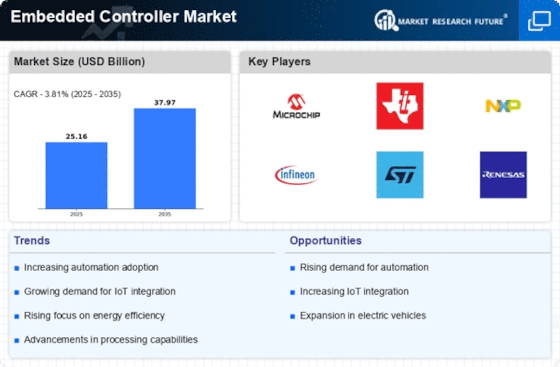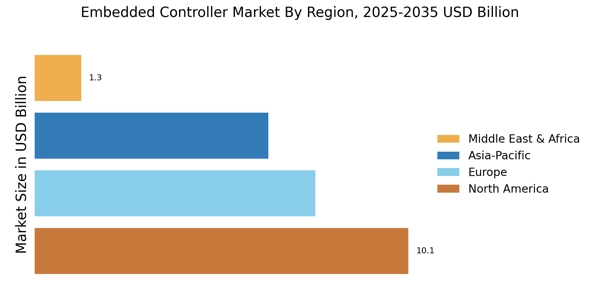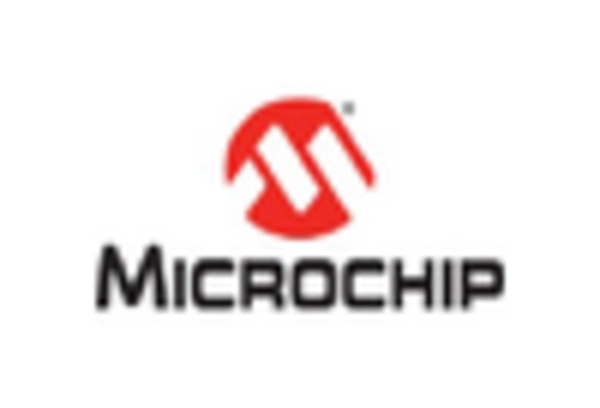Emergence of Edge Computing
The Embedded Controller Market is being shaped by the emergence of edge computing, which allows data processing to occur closer to the source of data generation. This shift reduces latency and bandwidth usage, making embedded controllers essential for real-time applications. As industries adopt edge computing solutions, the demand for embedded controllers that can efficiently handle data processing at the edge is likely to increase. The edge computing market is projected to grow significantly, with estimates suggesting a value of over 20 billion dollars by 2026. This growth presents a substantial opportunity for the Embedded Controller Market as companies seek to leverage the benefits of edge computing.
Rising Demand for Automation
The Embedded Controller Market is experiencing a notable surge in demand for automation across various sectors. Industries such as manufacturing, healthcare, and consumer electronics are increasingly adopting embedded controllers to enhance operational efficiency and reduce human intervention. This trend is driven by the need for precision and reliability in automated processes. According to recent data, the automation sector is projected to grow at a compound annual growth rate of approximately 9% over the next five years. As organizations seek to streamline operations and improve productivity, the integration of embedded controllers becomes essential, thereby propelling the Embedded Controller Market forward.
Advancements in Industrial IoT
The Embedded Controller Market is poised for growth due to advancements in Industrial Internet of Things (IIoT) technologies. As industries increasingly adopt IIoT solutions to enhance operational efficiency and data analytics, the role of embedded controllers becomes more pronounced. These controllers facilitate real-time data processing and communication between machines, which is crucial for predictive maintenance and operational optimization. The IIoT market is projected to grow significantly, with estimates suggesting a value exceeding 100 billion dollars by 2025. This trend indicates a strong demand for embedded controllers that can support complex industrial applications, thereby propelling the Embedded Controller Market.
Growth of Smart Home Technologies
The Embedded Controller Market is significantly influenced by the rapid expansion of smart home technologies. As consumers increasingly seek convenience and energy efficiency, embedded controllers play a pivotal role in enabling smart devices to communicate and function seamlessly. The market for smart home devices is expected to reach a valuation of over 150 billion dollars by 2026, indicating a robust growth trajectory. This growth is largely attributed to advancements in wireless communication technologies and the rising adoption of Internet of Things (IoT) solutions. Consequently, the demand for embedded controllers that can support these smart applications is likely to escalate, further driving the Embedded Controller Market.
Increased Focus on Security Solutions
The Embedded Controller Market is witnessing a heightened focus on security solutions, particularly in the context of connected devices. As cyber threats become more sophisticated, the need for secure embedded systems is paramount. Manufacturers are increasingly integrating advanced security features into embedded controllers to protect sensitive data and ensure device integrity. This trend is particularly evident in sectors such as automotive and healthcare, where security breaches can have severe consequences. The market for embedded security solutions is expected to grow, indicating a strong correlation with the Embedded Controller Market as companies prioritize security in their product offerings.















